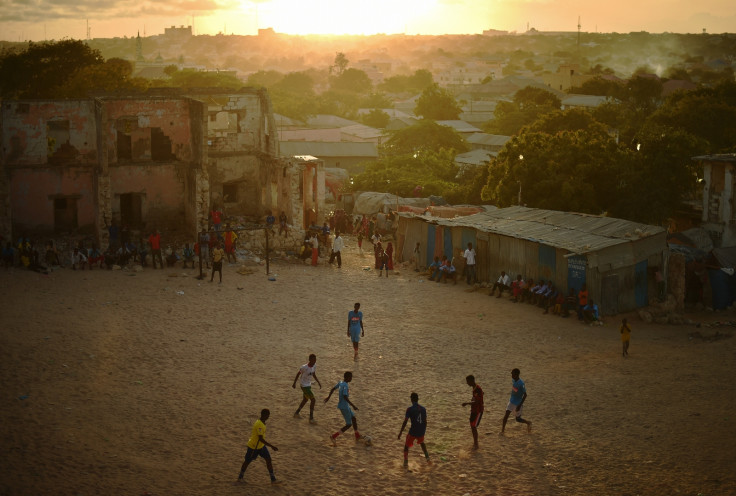Which are the most corrupt countries in the world?
No area is free of corruption, but some countries are worse than others.

Every year, an estimated $1trn is paid in bribes, with around $2.6trn stolen annually through corruption. Although definitive statistics are impossible because of the nature of the crime, it is believed that around 68% of countries worldwide have a serious problem with corruption.
Here are the most corrupt countries, according to the latest Corruption Perceptions Index.
1st: North Korea and Somalia (joint)
Earlier this year, the BBC reported huge cases of corruption and voter intimidation in the parliamentary elections in Somalia, with some candidates offering bribes of up to £1m to secure votes.
Although North Korea suffers large-scale corruption, South Korea has its problems too. In November, a scandal emerged surrounding the South Korean president Park Gun-hye, who isaccused by prosecutors of being involved in a scheme to pressure major companies to donate millions of dollars to funds controlled by a close friend.
2nd: Afghanistan
In Afghanistan, one of the world's poorest countries, millions of dollars that should have gone on reconstruction have been reportedly misused or stolen, undermining efforts to sustain peace. In 2010, nearly $1bn disappeared from Kabul Bank, after businessmen and politicians carried out a Ponzi scheme in which deposits were stolen instead of invested.
3rd: Sudan
After decades of war and political instability, Sudan faces high levels of corruption, which exist in pretty much every section of its economy.
4th: Angola and South Sudan (joint)
In Angola, a country rich with oil and diamonds, nearly three-quarters of the population (70%) live on $2 a day or less and around one in six children die before the age of five. According to Transparency International, however, not everyone is suffering – the president's daughter is a billionaire, having made her fortune from the diamond and telecoms business.
5th: Iraq and Libya (joint)
In May, a Transparency International survey found nearly one in three citizens who tried to access basic public services in the Middle East and North Africa paid a bribe. Of around 11,000 adults across nine countries and territories, 61% of people thought that the level of corruption had gone up in the last year.
6th: Haiti, Guinea-Bissau and Venezuela (joint)
In Venezuela, government funds are mismanaged, stolen or spent on companies linked to power. In one case, a journalist working with Transparencia Venezuela found least 400 tonnes of medicines had been left to expire in storage between 2010 and 2014, instead of being distributed to medical facilities in a country that lacks basic medical equipment.
7th: Eritrea, Syria, Turkmenistan and Yemen (joint)
In Syria, corruption has helped finance violent extremist groups and aided them with recruitment. Earlier this year, French officials placed Syrian President Bashar al-Assad's uncle – Rifaat al-Assad – under investigation for corruption and money laundering, alleging he acquired wealth and a property empire in France through embezzlement and corrupt schemes.
8th: Uzbekistan
One of the most corrupt countries in the world is Uzbekistan, where the crime penetrates all levels of the business and society. Bribes impact court decisions, extortion is common among the police and the enforcement of anti-corruption laws is weak.
9th: Burundi, Cambodia and Zimbabwe (joint)
Corruption and human rights abuses have been evident in Burundi since President Pierre Nkurunziza's decision to run for a third term in July, which sparked violence including assassinations, arrests, torture of government critics and escalating attacks by anti-government forces. The government has shut down nearly all private media and increased surveillance of citizens.
10th: Chad, Democratic Republic of Congo, Myanmar (joint)
Myanmar, or Burma, experienced more than 40 years of military rule, but it is experiencing political and economic reforms. However, the military is still influential in politics, the media are still restricted and corruption is still a major challenge.
© Copyright IBTimes 2025. All rights reserved.





















